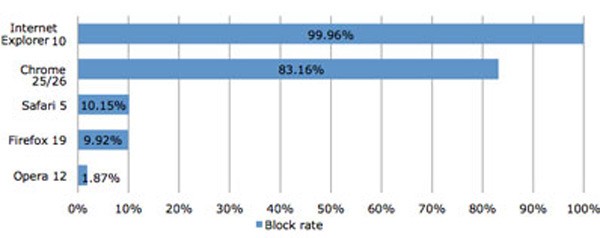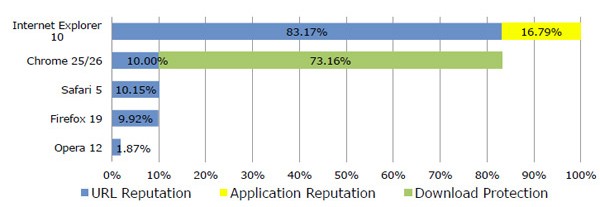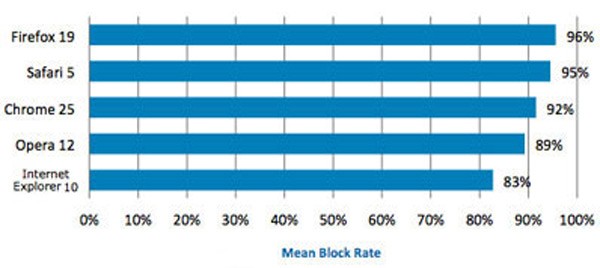IE 10 Remains King of Malware and Privacy Protection Yet Flounders at Blocking Phishing Sites
The web browser application wars are still in full effect as NSS Labs shares updated test results reiterating how Internet Explorer is (surprisingly) the best at malware and privacy protection.
We can remember a time when Internet Explorer had somewhat of a monopoly over any other web browser as it was the exclusive offering with all Windows PCs sold on the shelves of your local computer store. The tides have changed where Google's Chrome web browser battles to retain its first-place as far as the most utilized web browser when accounting all types of computers (Mac and PC).
In the past, Internet Explorer has had its rash with criticism for being the most lenient when it comes to protecting against malware and aiding with privacy protection. It seems the tables have turned in a favorable direction for the latest version of Internet Explorer as it is rated as #1 for malware and privacy protection when pitted against the likings of Chrome, Firefox, Opera and Safari.
The chart below in Figure 1 shows how Internet Explorer 10 trumps its closes competitor in terms of malware and privacy protection, that being Google Chrome. In Figure 2. We have posted a previous chart gathered from data analyzed by NSS back in May of this year for overall malware block rates by browser. You can clearly contrast the two charts demonstrating a slight improvement by both browsers.
Figure 1. - Block Rate Study Chart for Popular Web Browser Applications - Source: NSS Labs

Figure 2. - Overall Malware Blocking Rates for Popular Web Browser Applications (May 2013) - Source: NSS Labs

To throw a wrench in Internet Explorer 10's glory for malware and privacy protection in phishing sites, the Microsoft web browser falls short for its block rate compared to all other popular web browsers. This can be seen in a marginal contrast in Figure 3 below showing the Mean Block Rate of each web browser according to NSS's latest analyses.
Figure 3. - Mean Block Rate (Phishing Attempt Blocking Rate) for Popular Web Browser Applications - Source: NSS Labs

Internet Explorer 10's ability to actually spot and block phishing attempts flounders due to a few factors starting with it exclusively using Microsoft's SmartScreen technology, used for both malware and phishing protection. The use of Google's Safe Browsing API, used by Firefox, Safari and Chrome, seem to have an edge for blocking agents or the task of actually blocking a potential malware-laden site.
NSS has a farm of valuable information in their testing procedures and how they were able to conclude their findings allowing them to rate each web browser on its malware defenses. In today's day, we must do all we can to prevent infection from sophisticated malware threats. Your web browser, whether you know it or not, serves as a front line of defense, and you must be assured you are using one that is most effective in the never-ending malware war.